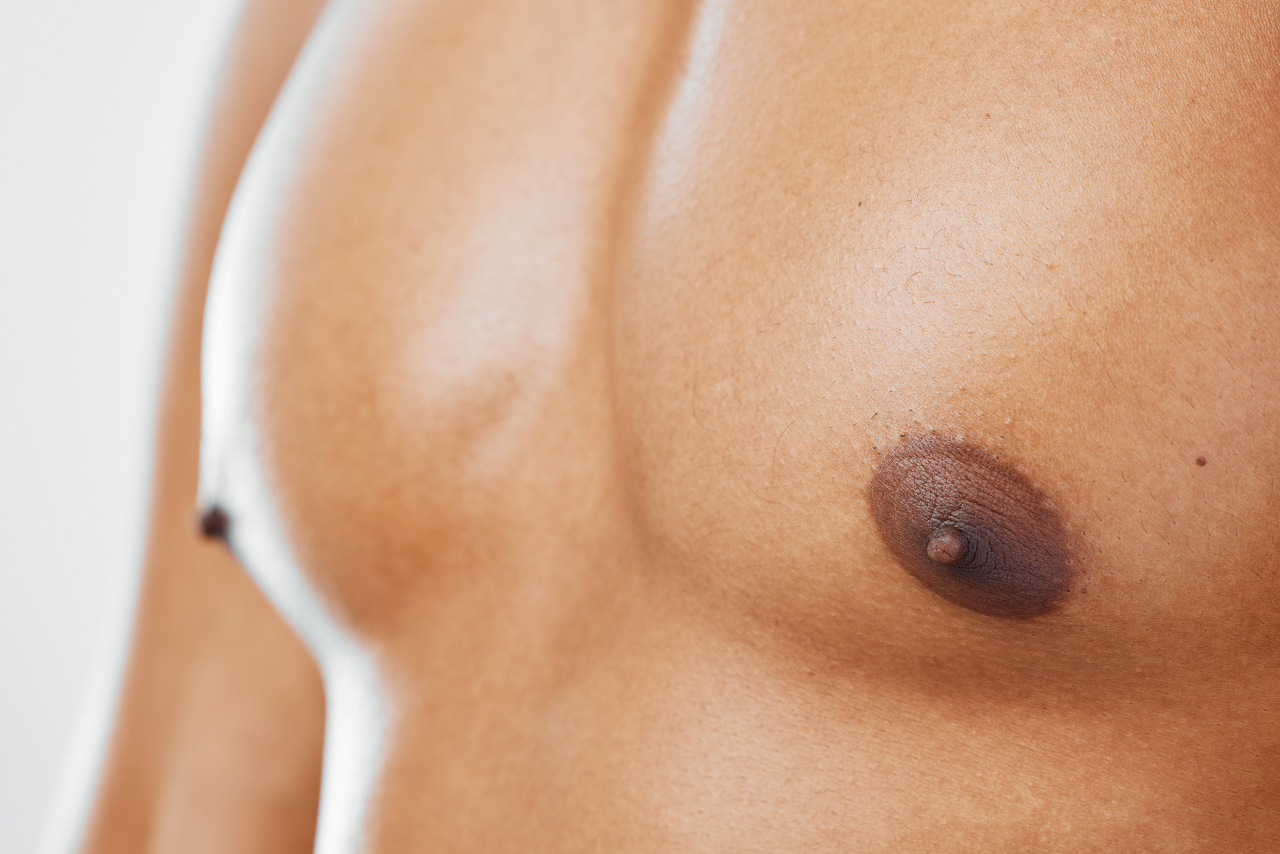
Gynecomastia, or most commonly known as "man boobs," is the enlargement of breast tissue in males. While this condition can be distressing, it's important to understand that gynecomastia is not always preventable. Hormonal fluctuations, certain medications, and underlying health conditions can contribute to its development. However, making informed lifestyle choices and being aware of potential risk factors can help minimize the likelihood of developing gynecomastia.
Managing Hormonal Balance (If Possible)
Hormonal imbalances play a significant role in the development of gynecomastia, as they can lead to an increase in estrogen levels relative to testosterone. While fluctuations during puberty and aging are natural and often unavoidable, certain factors—such as medication use, diet, and lifestyle choices—can impact hormone regulation. Understanding these influences and making informed decisions can help reduce the risk of hormone-related gynecomastia. Some of the manageable factors are:
Medication Awareness
Certain medications have been linked to gynecomastia, as they can influence hormone levels and disrupt the body's natural balance. While these medications are often prescribed for essential health conditions, it's important to be aware of potential side effects. Always consult with your doctor if you suspect a medication may be contributing to gynecomastia. These may include:
- Some antidepressants
- Anti-androgens used for prostate conditions
- Certain heart and blood pressure medications
- Some antibiotics
It's crucial to consult a healthcare professional before making any changes to prescribed medications. Never stop or adjust your medication without your doctor's guidance. If you suspect a medication is contributing to gynecomastia, your doctor may suggest alternative treatments.
Avoiding Anabolic Steroids
Anabolic steroids, often used to enhance muscle growth, significantly increase the risk of gynecomastia. These substances can disrupt natural hormone levels, leading to an imbalance of estrogen and testosterone. Avoiding steroids is one of the most effective ways to reduce the risk of developing gynecomastia.
Lifestyle Factors
Adopting a healthy lifestyle supports hormonal balance and reduces the risk of gynecomastia. Regular exercise and a nutrient-rich diet help regulate hormone levels and maintain a healthy weight. Avoiding processed foods, excessive sugar, and other unhealthy food may further minimize risk factors too. Here are other lifestyle reminders to take note of:
Reminder #1: Healthy Weight Management
Excess body fat can contribute to increased estrogen levels, which may lead to gynecomastia. Maintaining a healthy weight through a balanced diet and regular exercise can support hormonal balance. However, it’s important to note that weight loss alone may not eliminate existing gynecomastia, especially if breast tissue (rather than fat) has developed.
Reminder #2: Responsible Substance Use
Certain substances such as alcohol have been associated with gynecomastia. Excessive alcohol consumption can impact liver function, which plays a role in hormone metabolism. Moderation and responsible substance use are key to overall health.
Early Detection and Consultation
Taking a proactive approach to your health is essential when it comes to gynecomastia, as early awareness and preventive measures can help manage risk factors. By maintaining a healthy lifestyle, monitoring for any changes, and seeking medical advice when necessary, individuals can take control of their well-being. Understanding the potential causes and making informed choices can significantly contribute to minimizing the likelihood of developing gynecomastia. Here are some tips:
- Take regular check-ups. Routine medical check-ups help identify potential health concerns early.
- Perform self-examinations. Be aware of any changes in your chest, such as swelling, tenderness, or nipple discharge. If you notice any symptoms, consult a doctor promptly.
- Don’t be afraid to seek medical guidance. A healthcare provider can help determine the cause of gynecomastia and suggest appropriate management or treatment options.
Disclaimer: This article is for educational purposes only and does not constitute medical advice. If you have concerns about gynecomastia or your overall health, consult a qualified healthcare professional for personalized guidance.
While gynecomastia cannot always be prevented, maintaining a healthy lifestyle, being aware of medication effects, and avoiding anabolic steroids can help reduce the risk. If you experience symptoms or have concerns, seeking medical advice is the best course of action.
Contact Us
If you’re dealing with gynecomastia, consider scheduling a consultation with two of the best surgeons in the country—Dr. Benz Alonzo and Dr. Benjamin Alonzo. With decades of expertise and experience, they can address any concerns you may have and ensure that you are well-informed and guided through this significant decision.
Schedule a confidential consultation today and have a personalized assessment and treatment planning to achieve your desired results.
FAQs
1. Can I prevent gynecomastia caused by puberty?
Puberty-related gynecomastia is often temporary and resolves on its own. While it cannot be prevented, maintaining a healthy lifestyle may help.
2. Will losing weight get rid of my gynecomastia?
While weight loss can help reduce excess fat deposits in the chest, it is important to distinguish between fat accumulation and true gynecomastia. Gynecomastia involves the enlargement of glandular breast tissue, which is not affected by weight loss alone. In such cases, medical intervention, such as hormone therapy or surgery, may be necessary for effective treatment.
3. Are there any medications I can take to prevent gynecomastia?
There are no guaranteed medications to prevent gynecomastia, but some treatments can help manage symptoms. Consult a doctor for advice.
4. Is gynecomastia a sign of cancer?
Gynecomastia itself is not cancerous, but any unusual breast changes should be evaluated by a doctor to rule out other conditions. Early medical assessment can help determine the cause and guide appropriate treatment if necessary.
5. When should I see a doctor about gynecomastia?
If you experience swelling, pain, nipple discharge, or persistent changes in your chest, consult a doctor for evaluation and guidance. We at Alonzo Cosmetics Surgery Clinic offer a safe and professional environment for such cases. Schedule a consultation with Dr. Benz Alonzo today to discuss your options and explore the best method for you or your loved one.